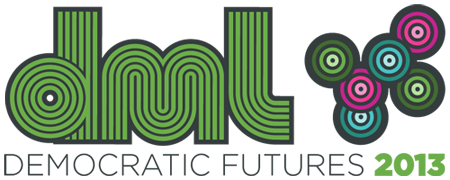21C: Connected Learning for Civic Education: How Facing History and Ourselves Reaches Teachers, Students, and the Public at Events, in Libraries, in Classrooms, and Online
One of the hallmarks of connected learning is building bridges among siloed dimensions of education: schools and informal settings, children and adults, affluent and under-resourced settings, physical spaces and online communities.
Facing History and Ourselves is an organization devoted to combating bigotry and promoting a humane and engaged citizenry through deep investigations of historical case studies of genocide and prejudice. Over thirty-five years, our educational work has spanned diverse settings from secondary school classrooms, to public installations in libraries, to community conversations, to benefit dinners, to professional development for educators working in schools, NGOs, and other public institutions. In the last five years, this work happens not only in physical environments but in online settings as well. We view the connections—the bridges—between these initiatives as central to our organizational learning, our sustainability and scalability, and our mission of civic education.
In this presentation, we will focus on four of these critical bridges:
1) Connecting Community and Educational Settings: We believe that engaging community members in our work is vital to supporting our broader educational mission. We’ll examine the impact of our public civic education installation, Choosing to Participate (currently in the Chicago Public Library), as well as the educational function of our benefit dinners and community events.
2) Connecting Students in Schools Serving Different Populations: As residential segregation continues to produce increasingly homogenous schools, organizations that span diverse communities, like Facing History, have an important role to play in bridging class divides. Our Digital Media and Innovation Network provides a online platform for students to engage with diverse peers—an increasingly vital platform for civic education.
3) Connecting with Partner Institutions: In urban centers like Chicago and New York, multiple organizations share a commitment to nurturing civic engagement, and we’ll discuss how our affiliation with the MacArthur Hive network provides opportunities for a collaborative approach to urban civic education.
4) Connecting face to face learning with online settings: Through online seminars, workshops, and webinars, we are exploring and evaluating how the deeply humanistic study of historical inquiry and moral development can be pursued in online settings.
The panel of presenters will include diverse stakeholders in our Facing History community: program staff who work with educators, development staff who work with community events, and practicing classroom teachers and students who are members of our Digital Media and Innovation Network. After short presentations on our four themes, we’ll engage participants in a discussion of how non-profit organizations can support connected civic learning. Participants will leave with new ideas, new examples, and new questions concerning how best to strengthen connections among nodes in their own networks.



